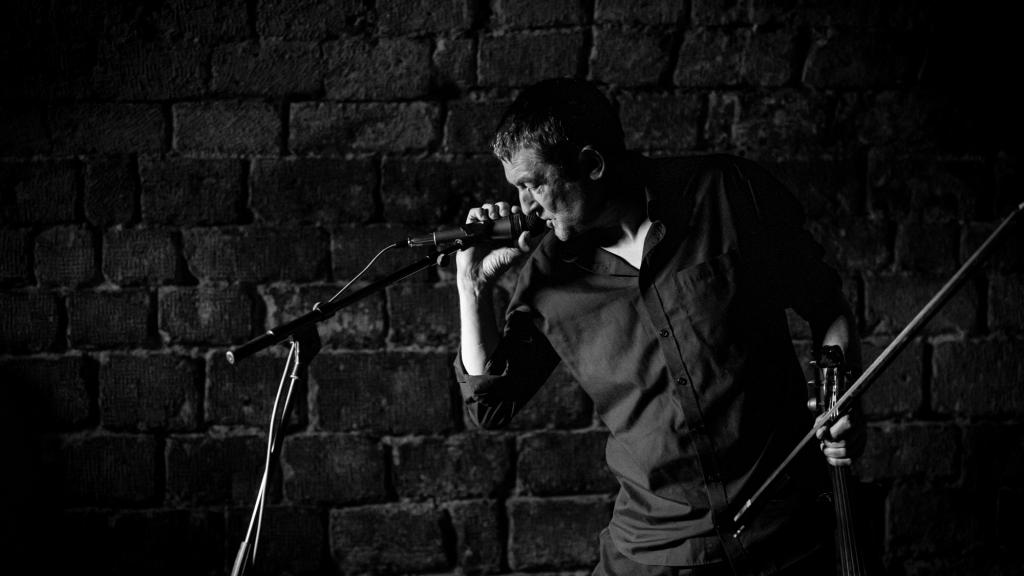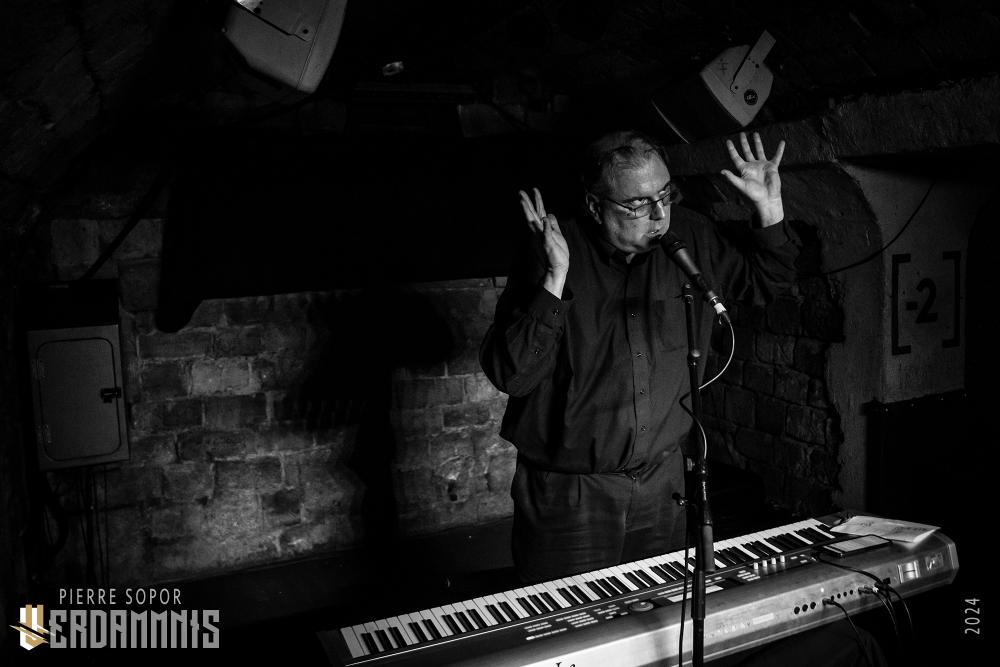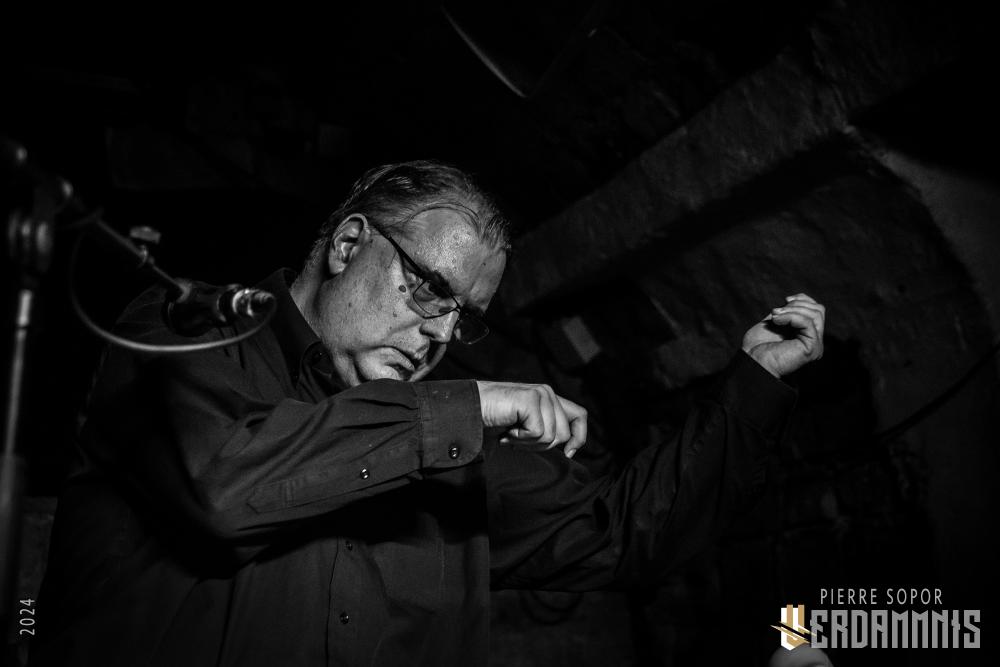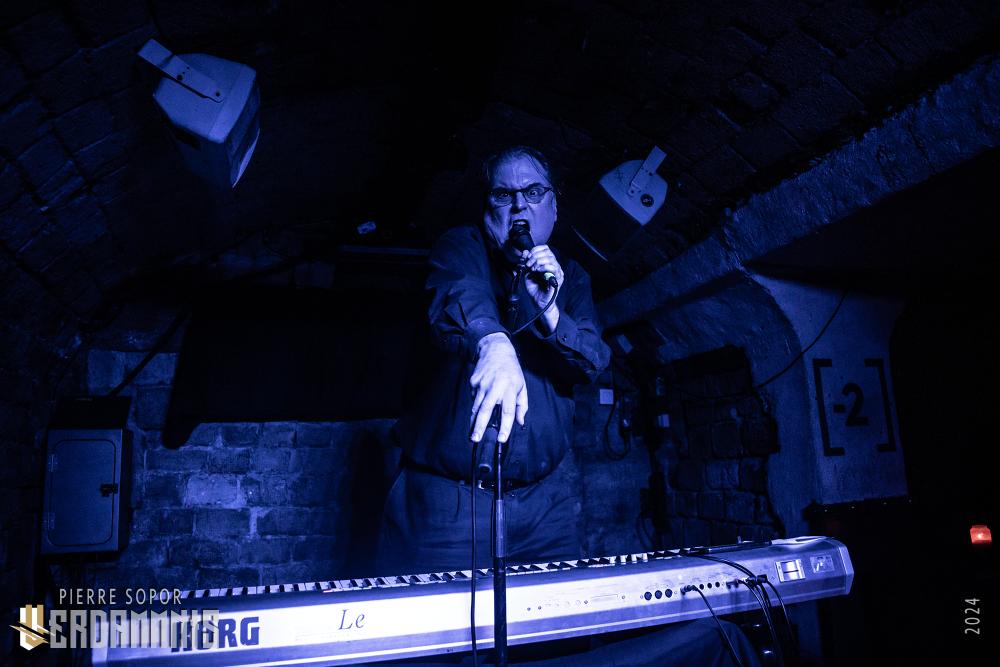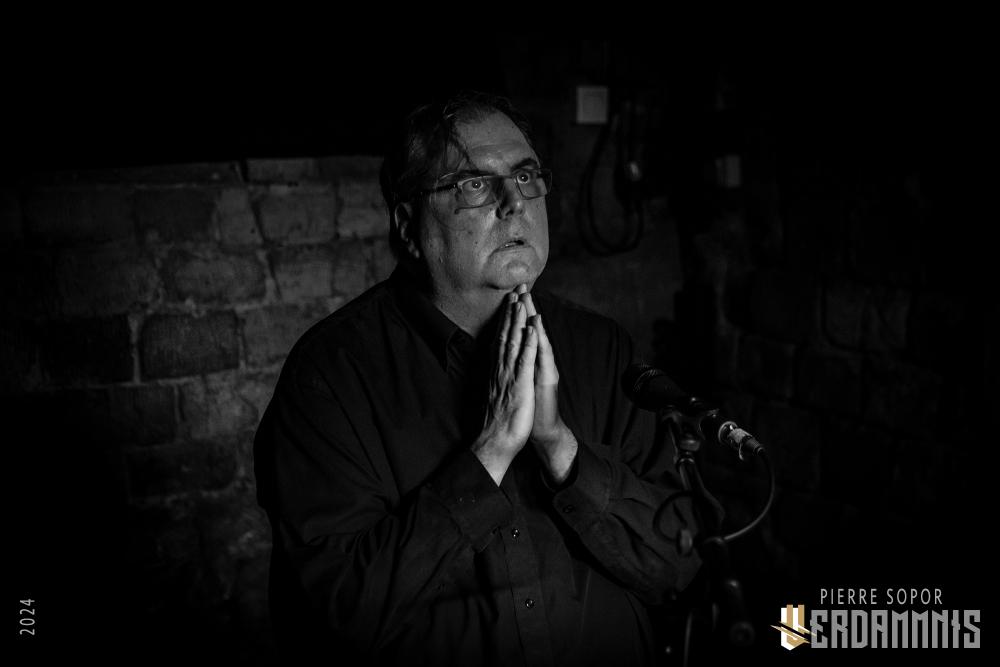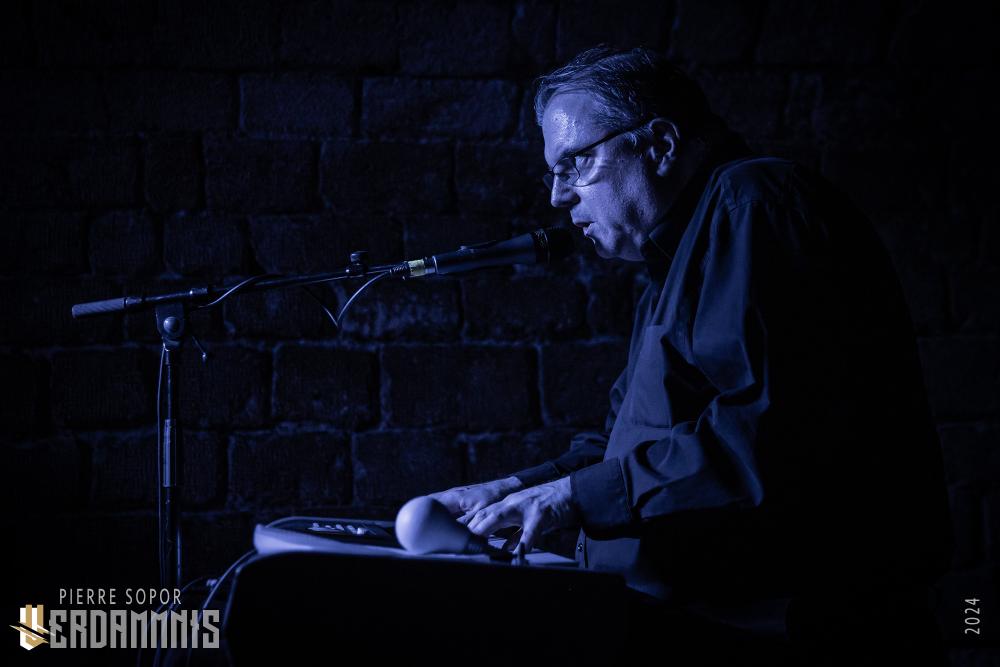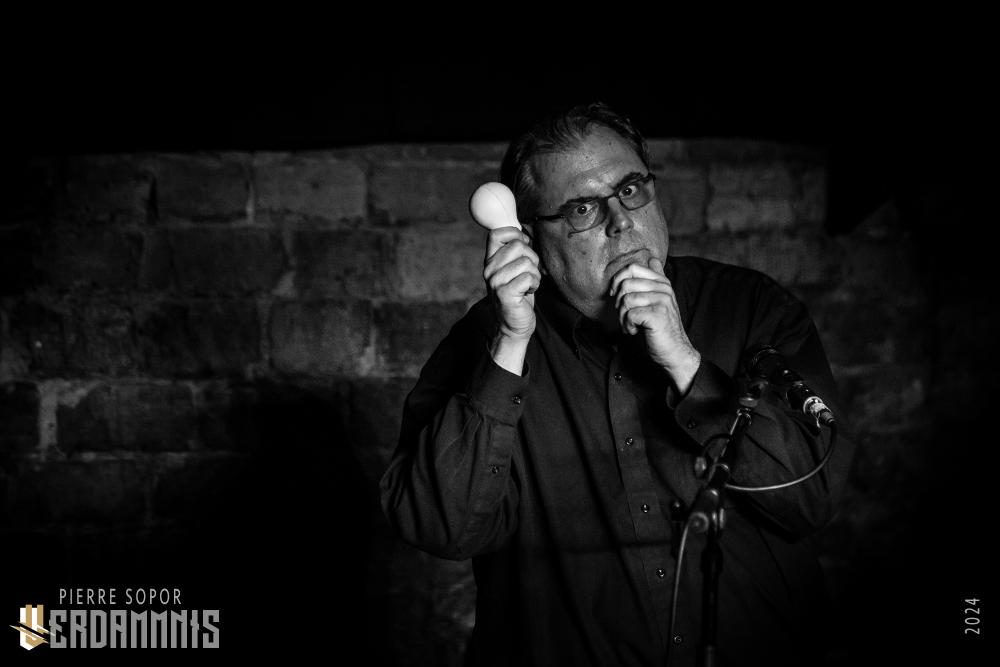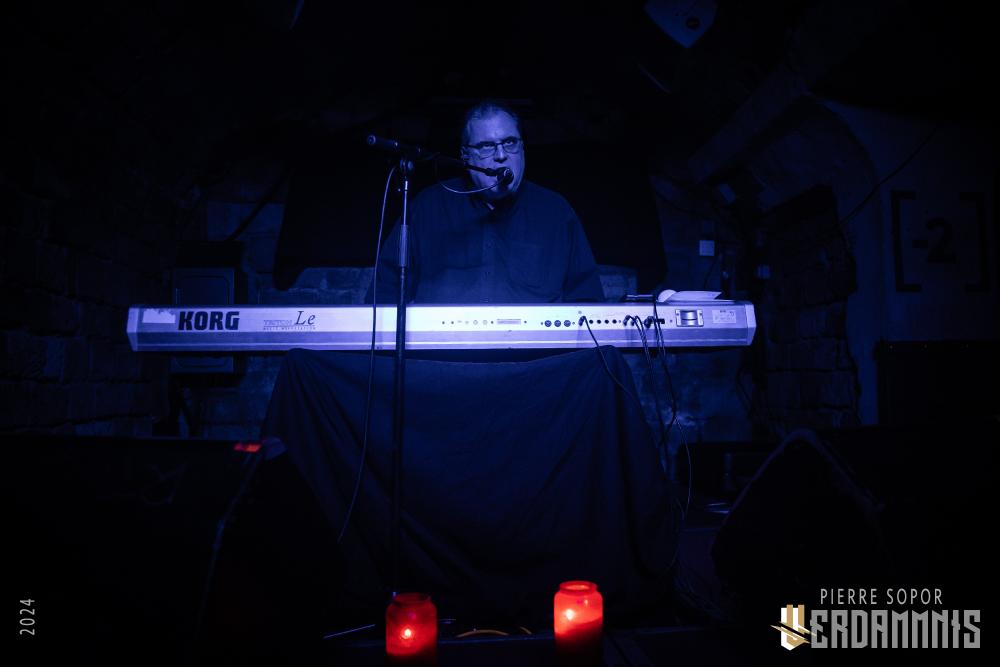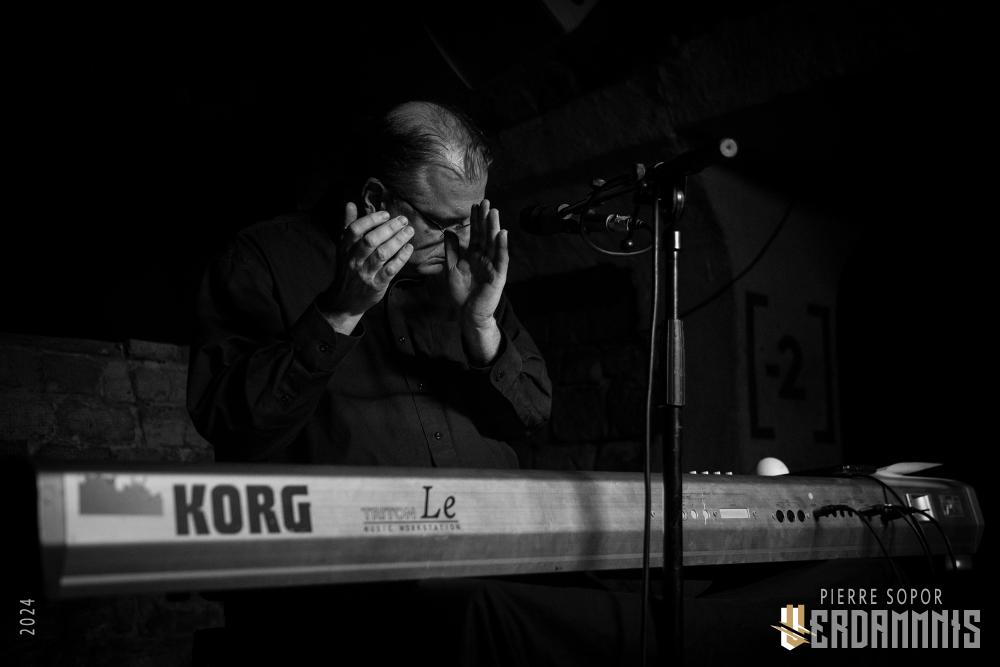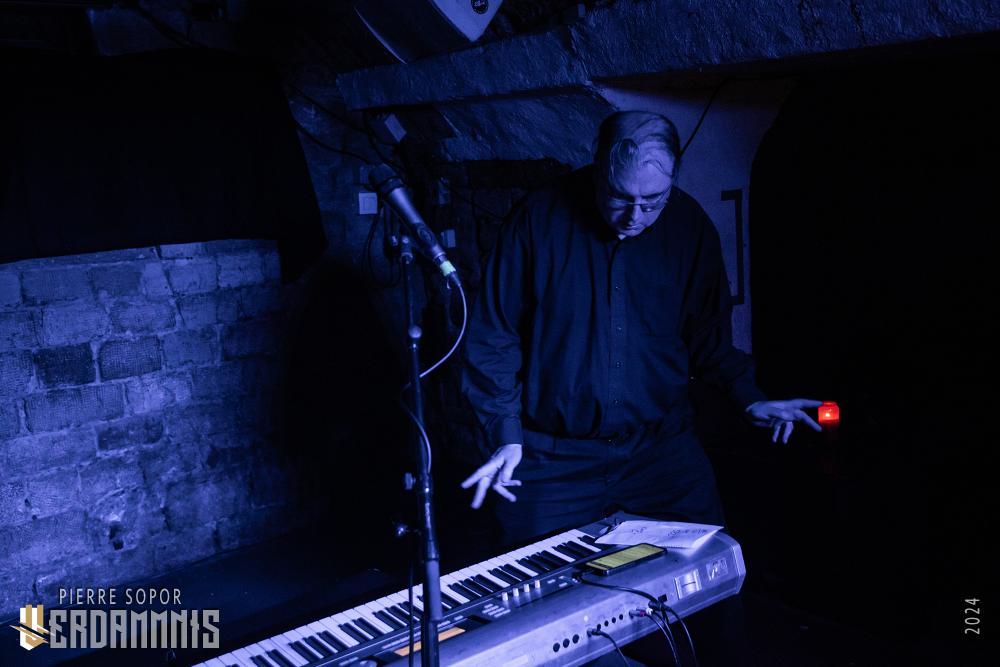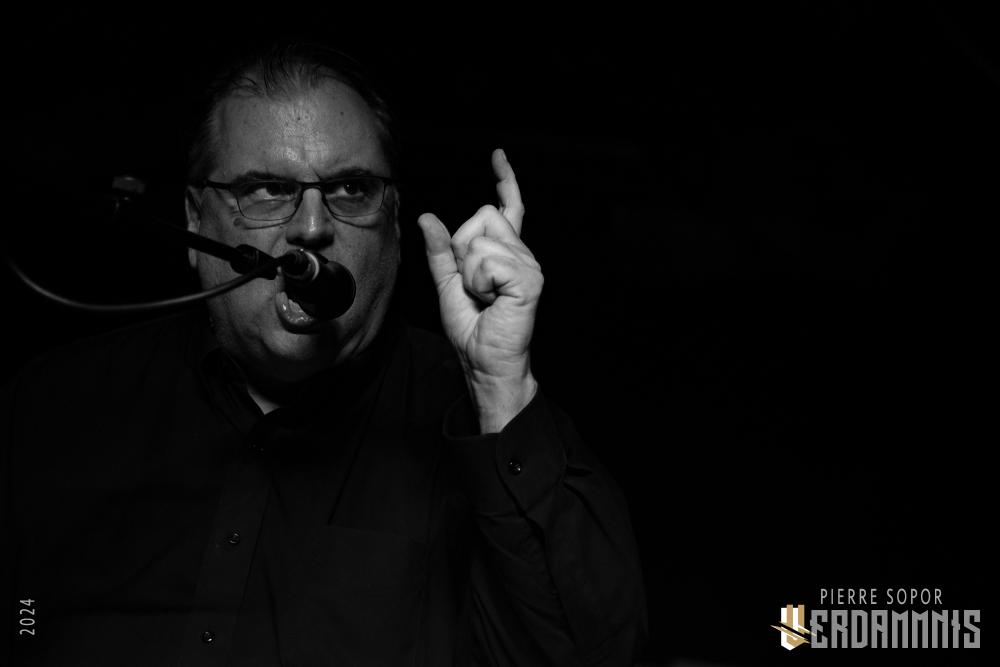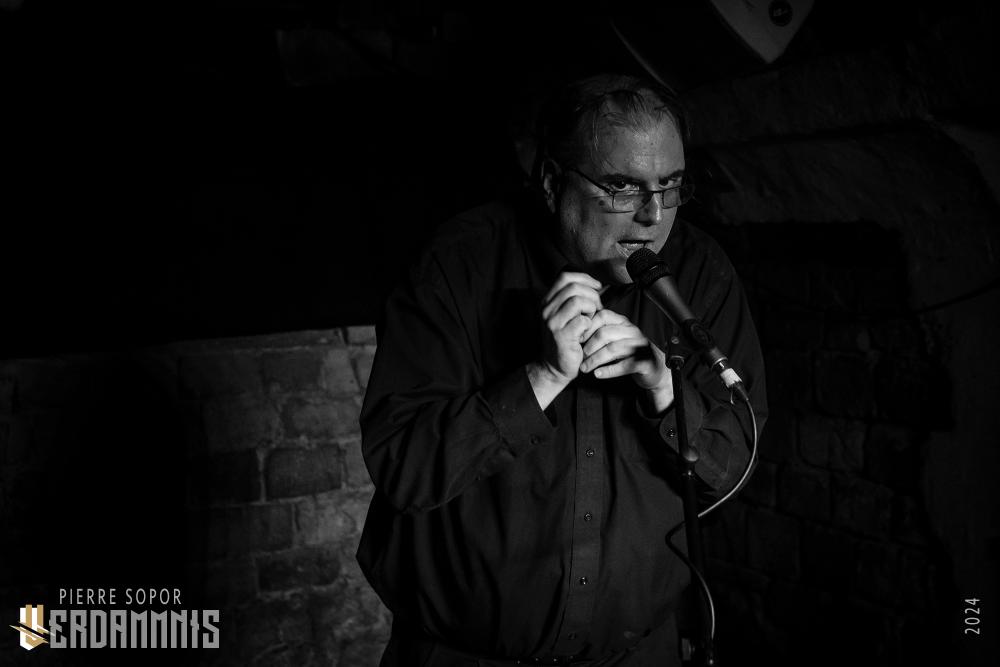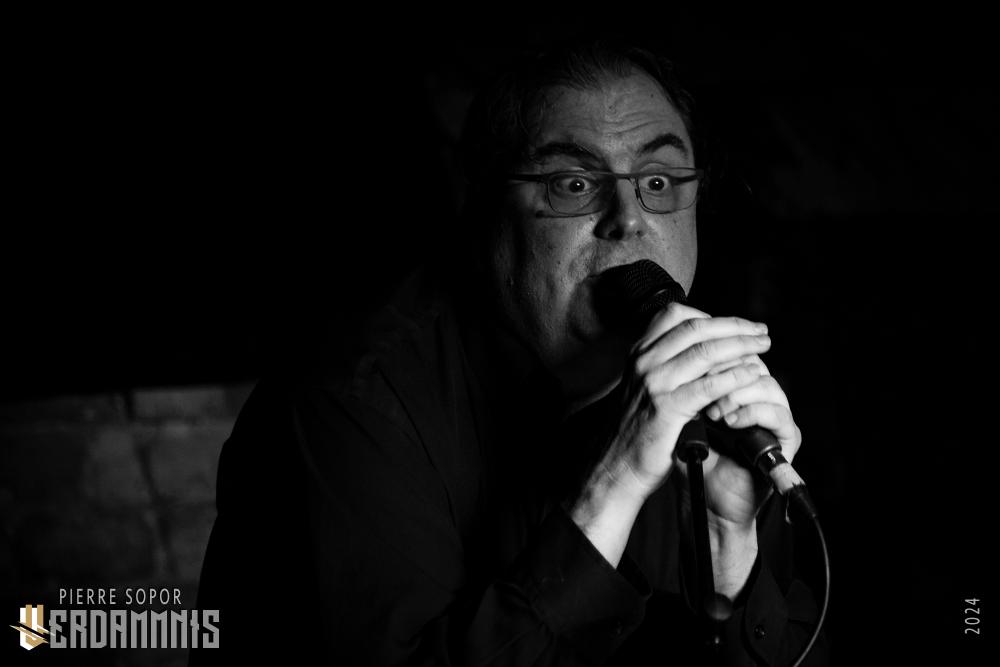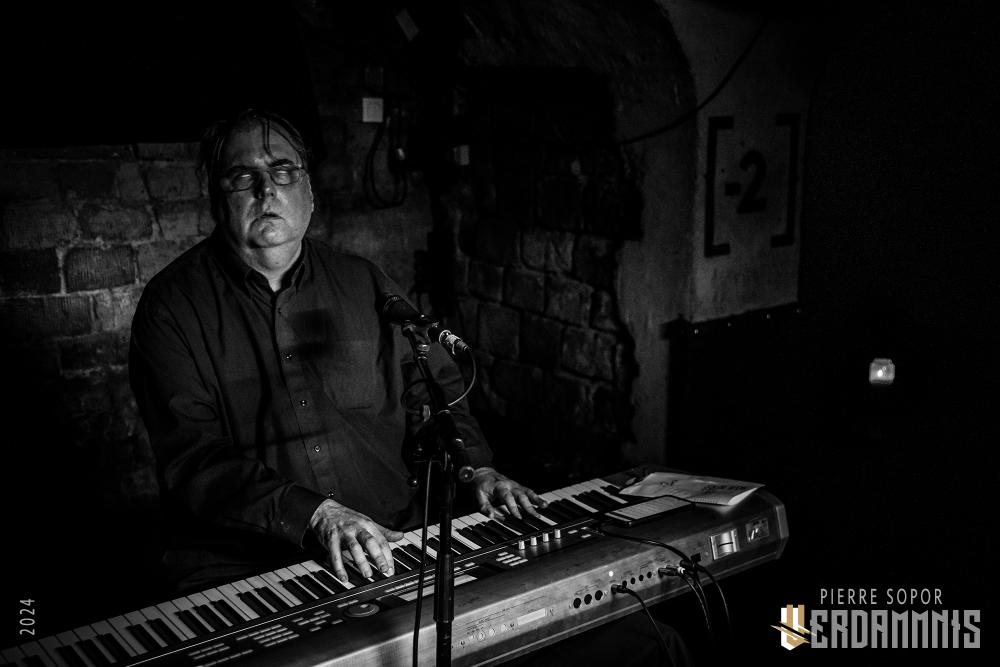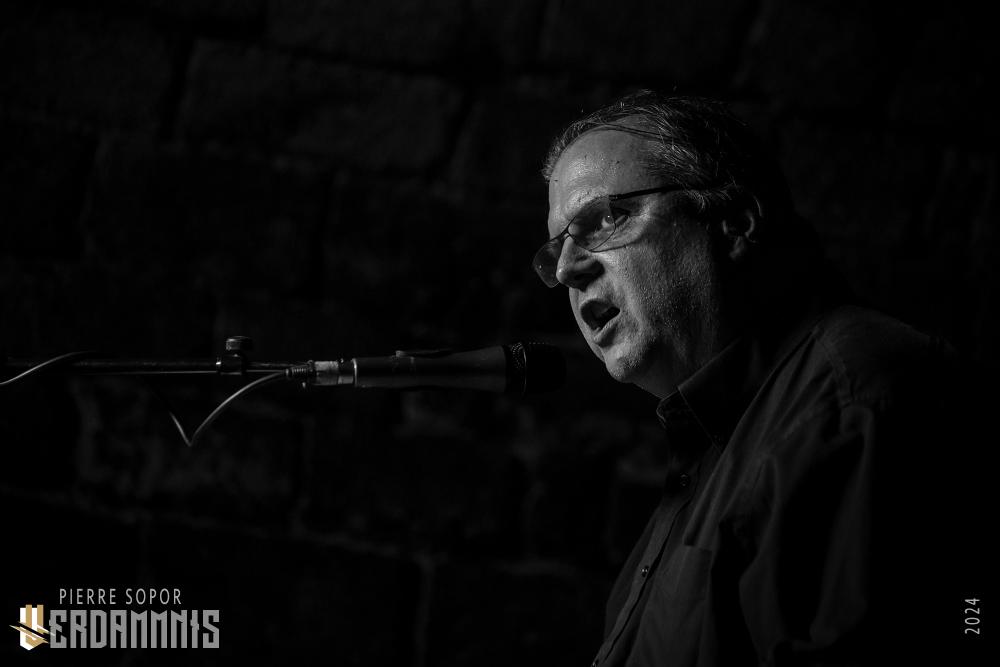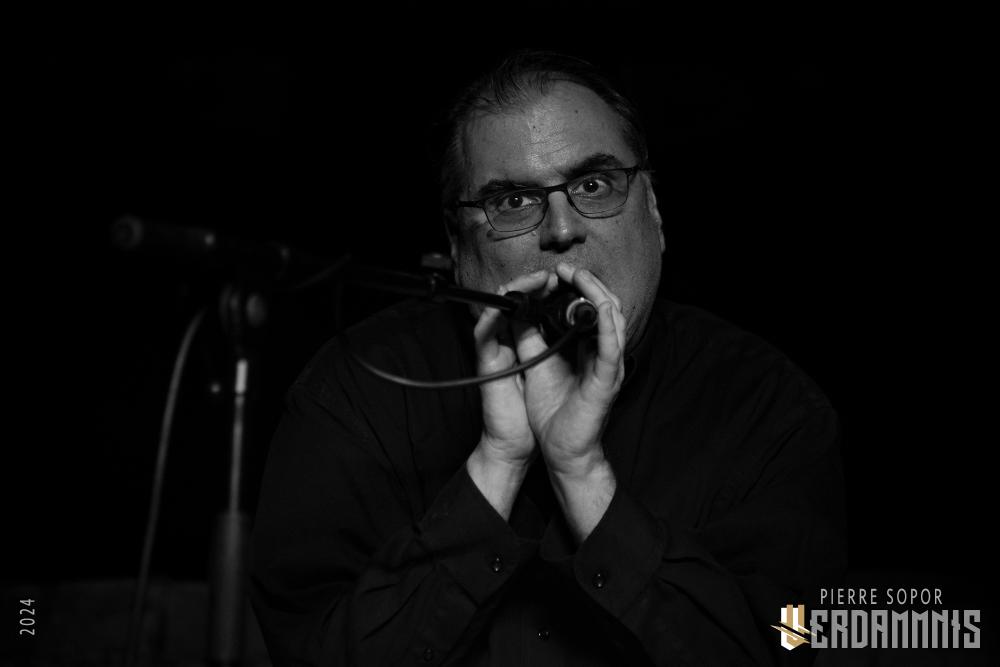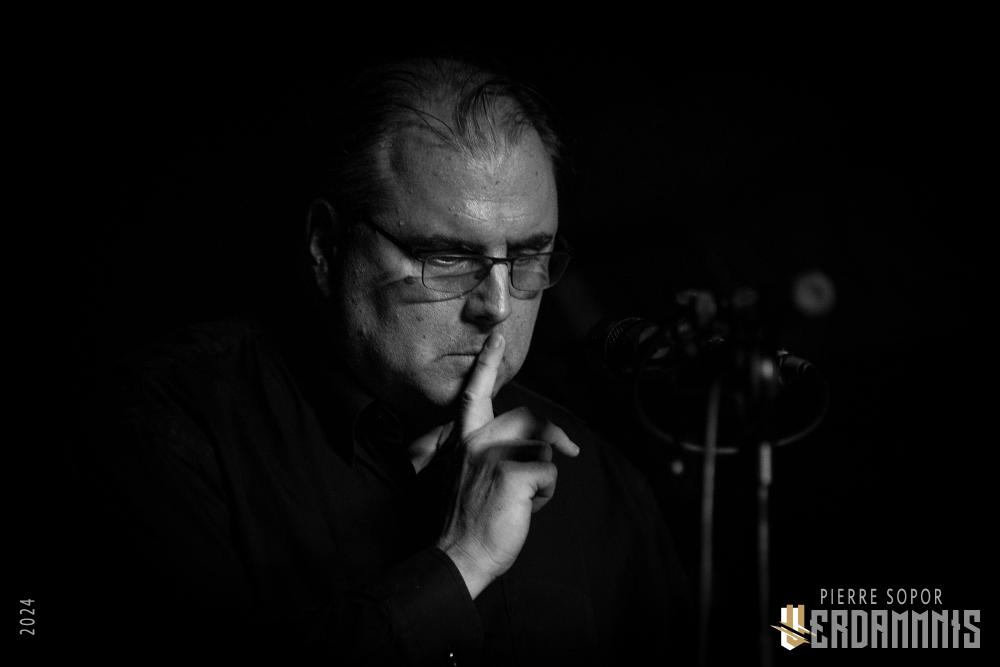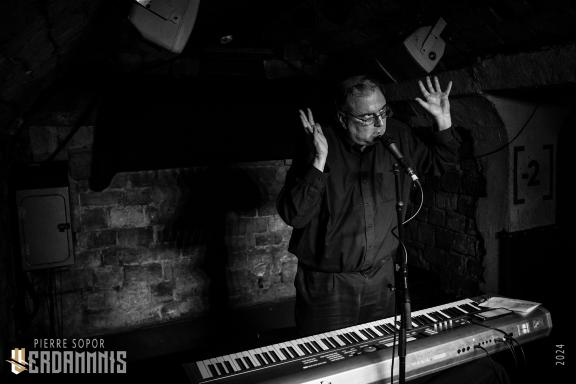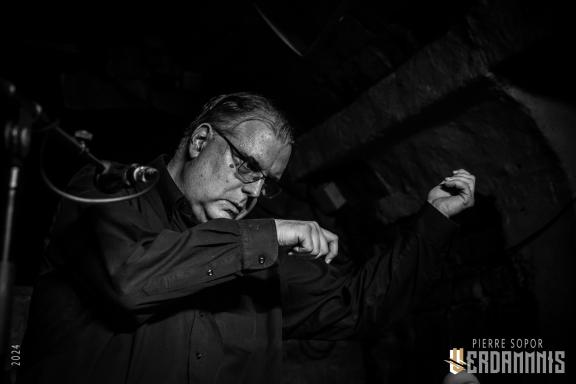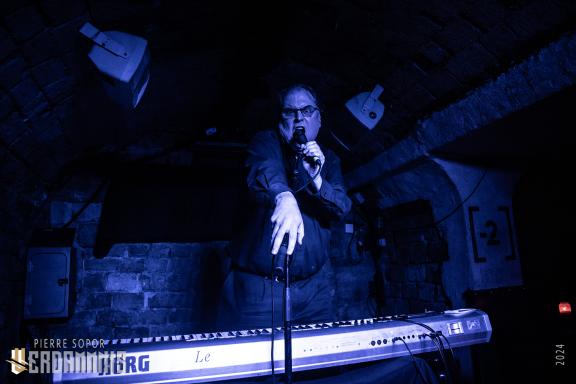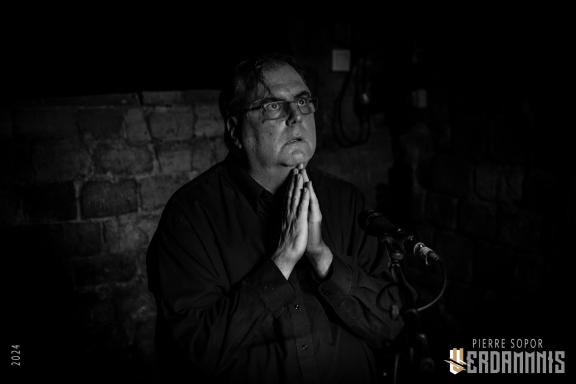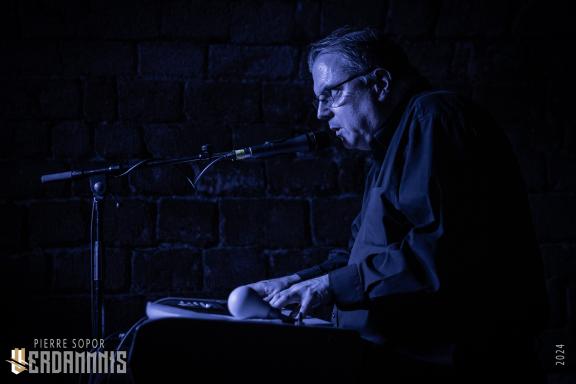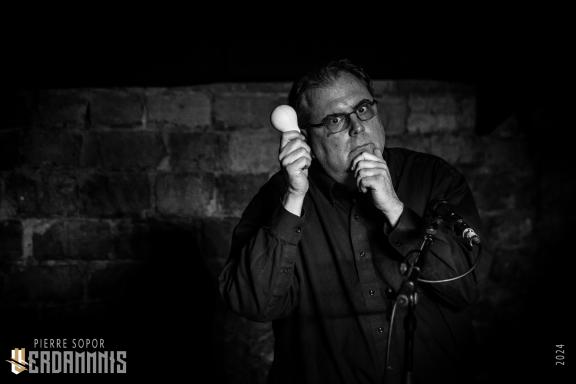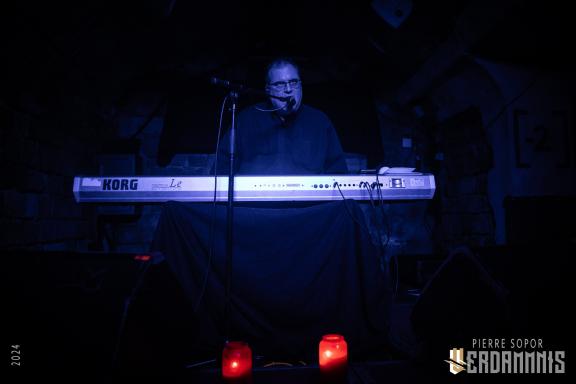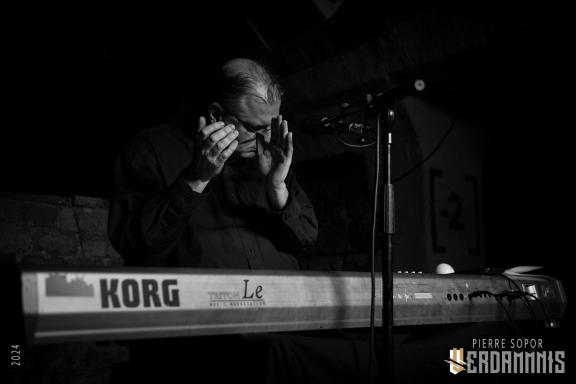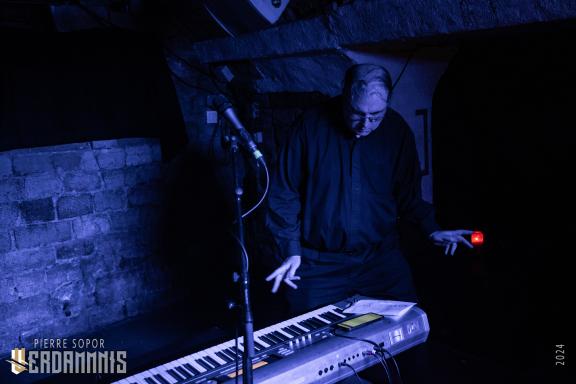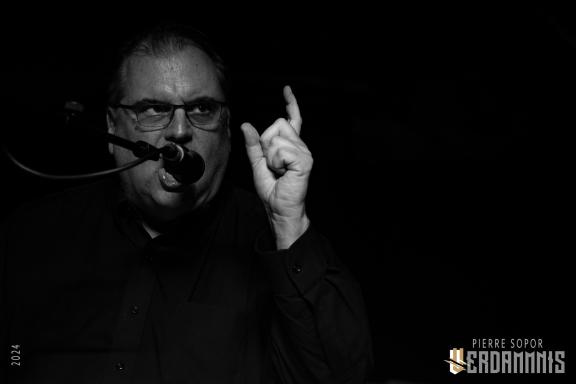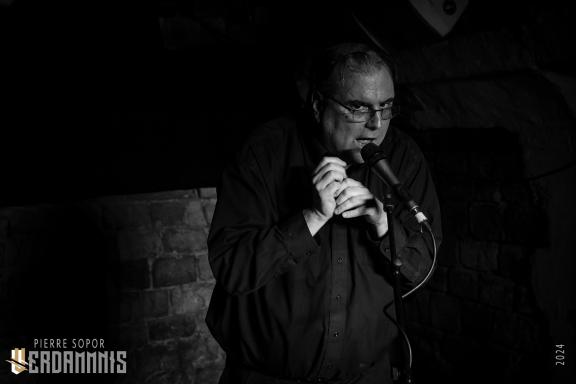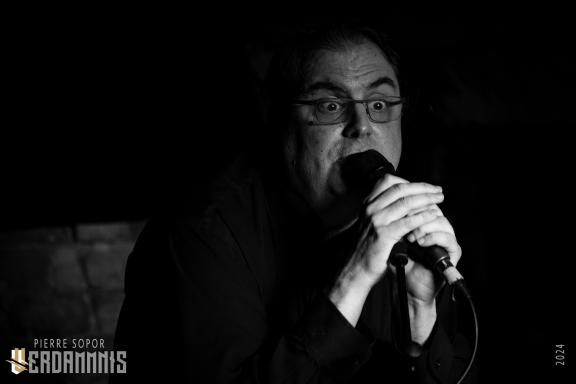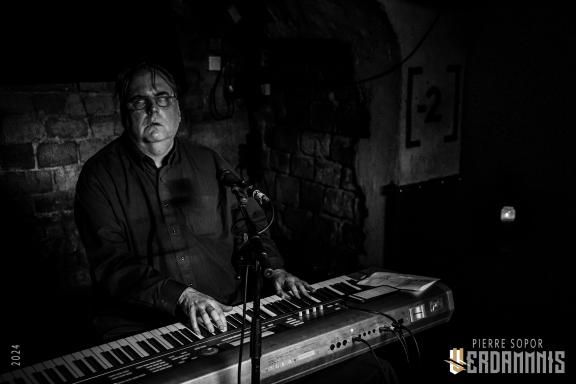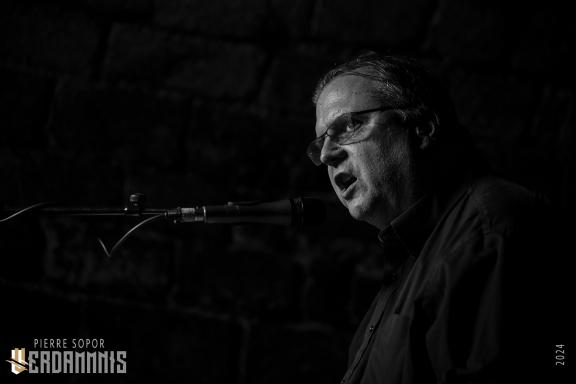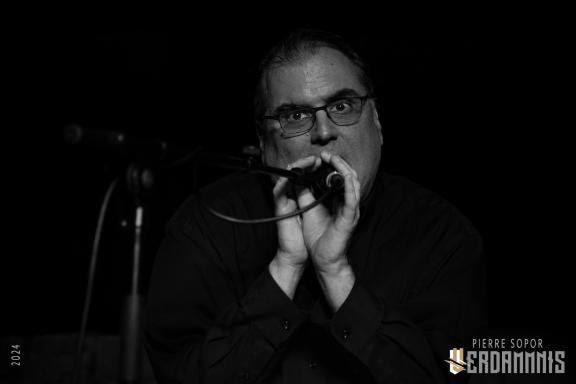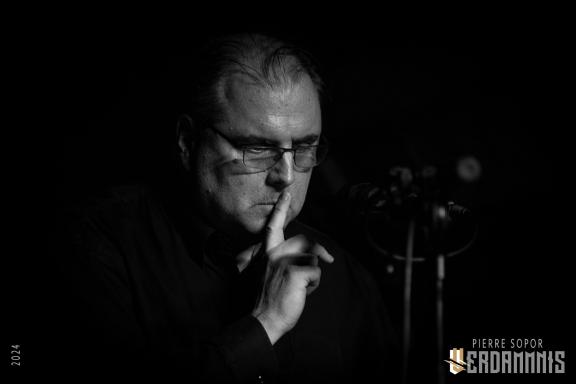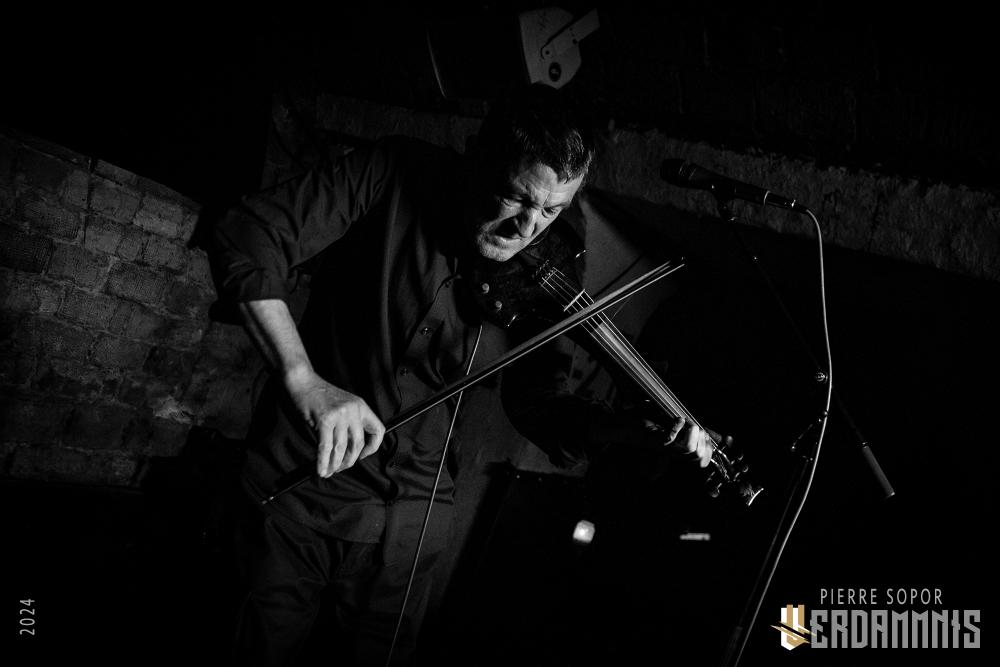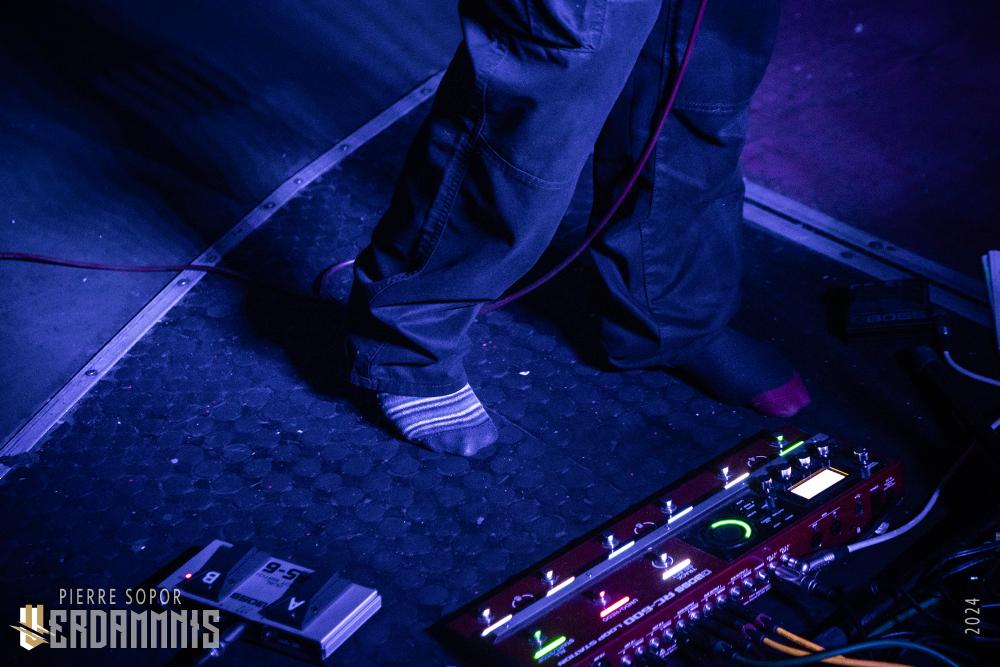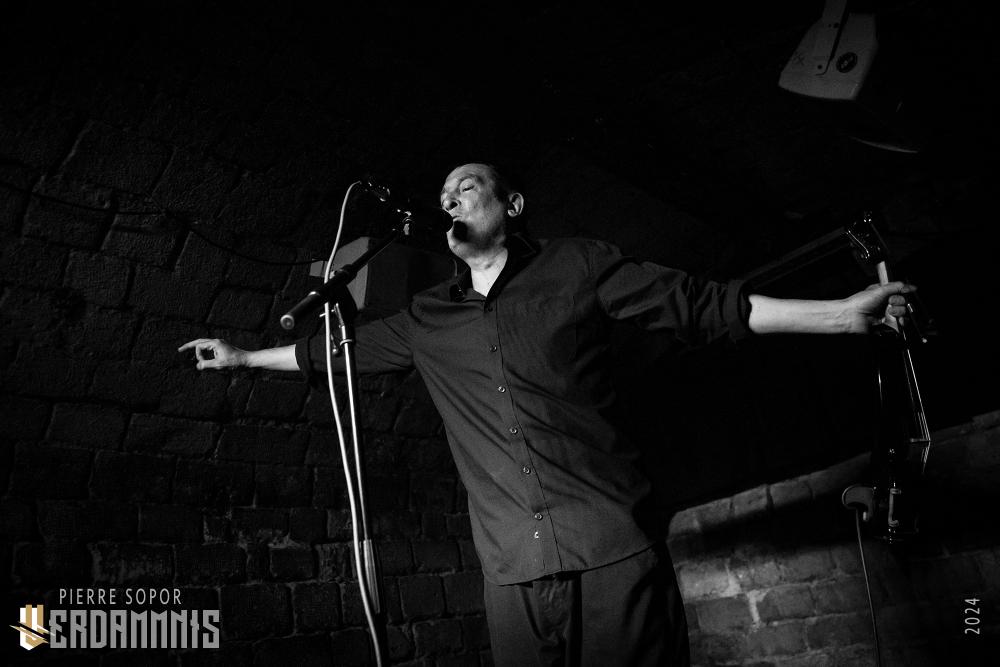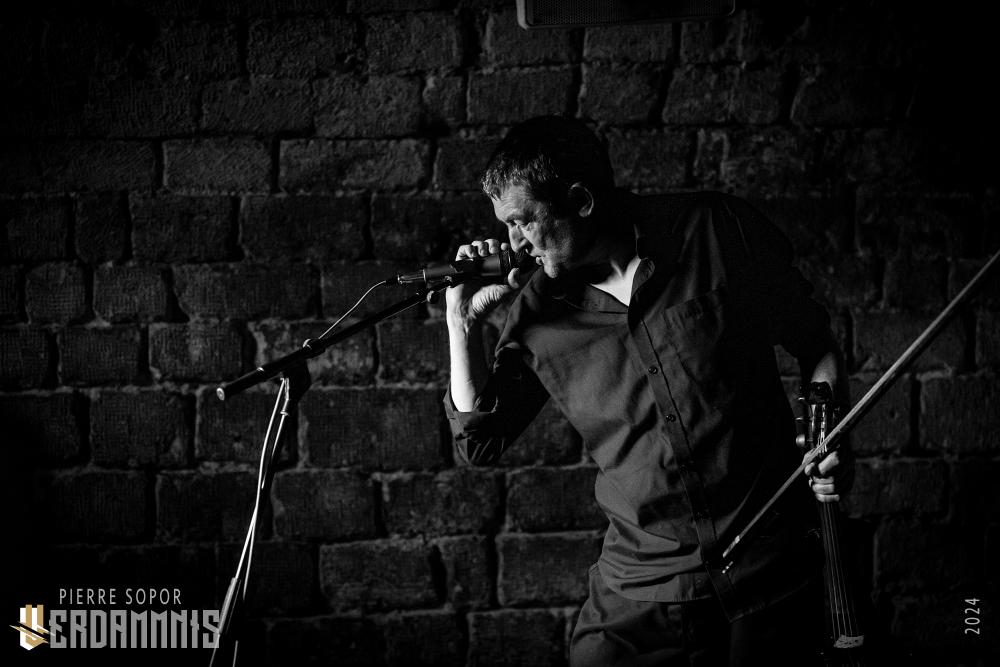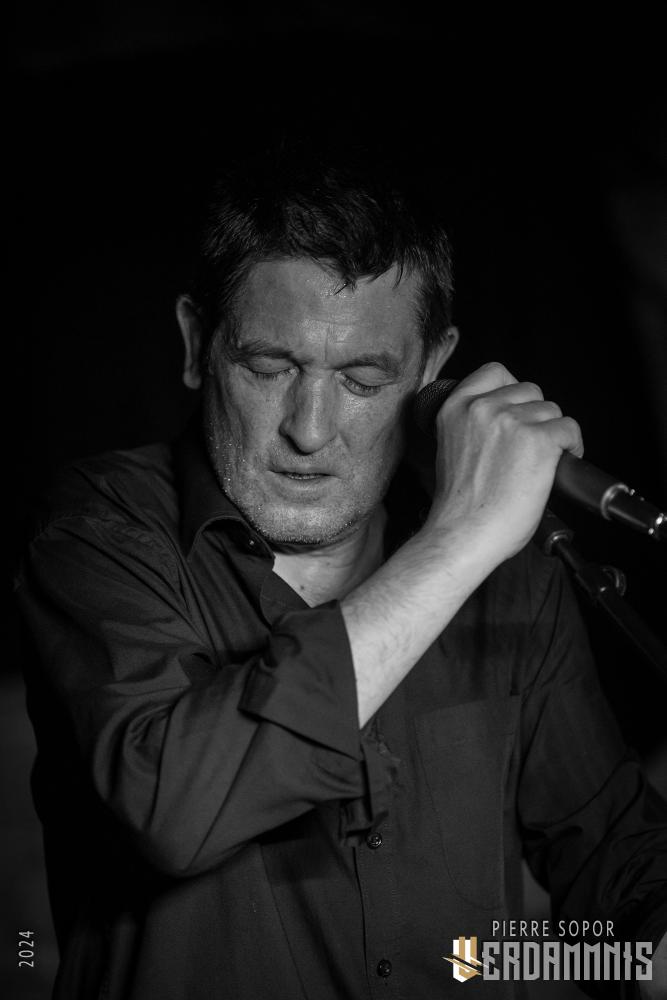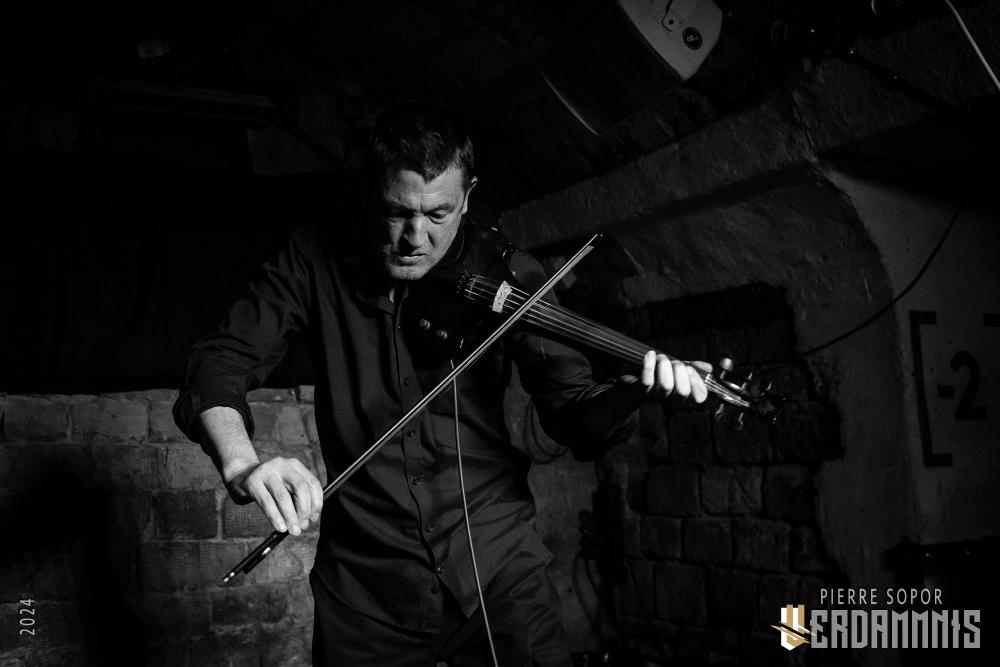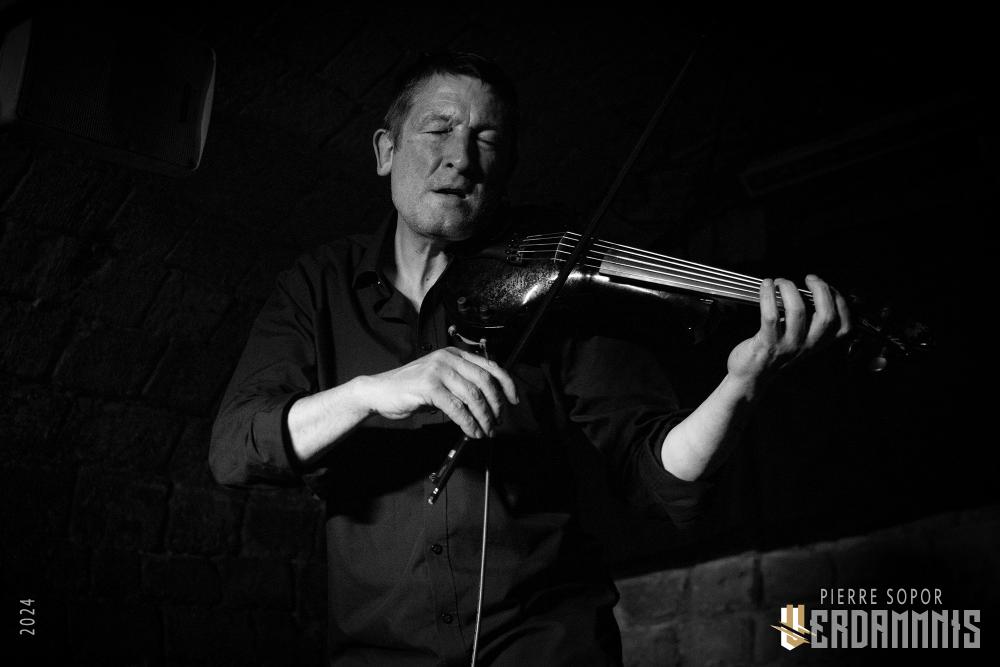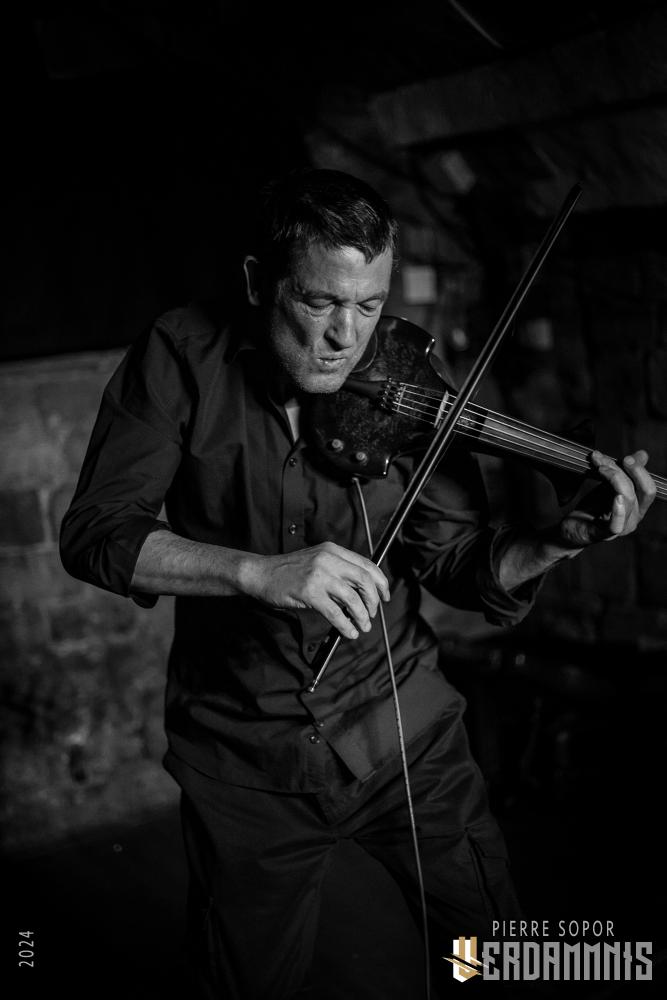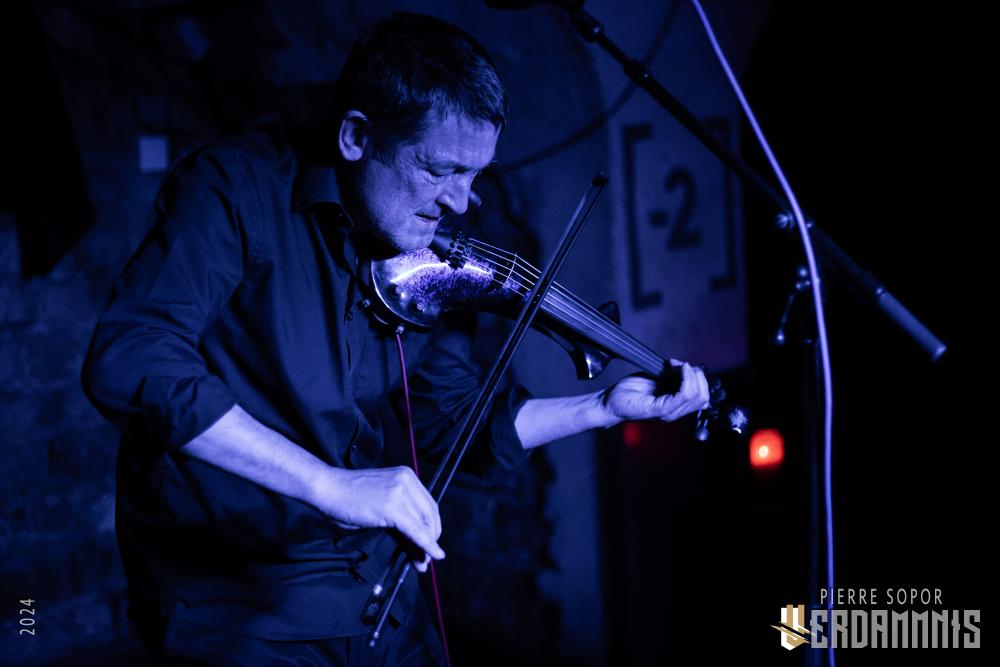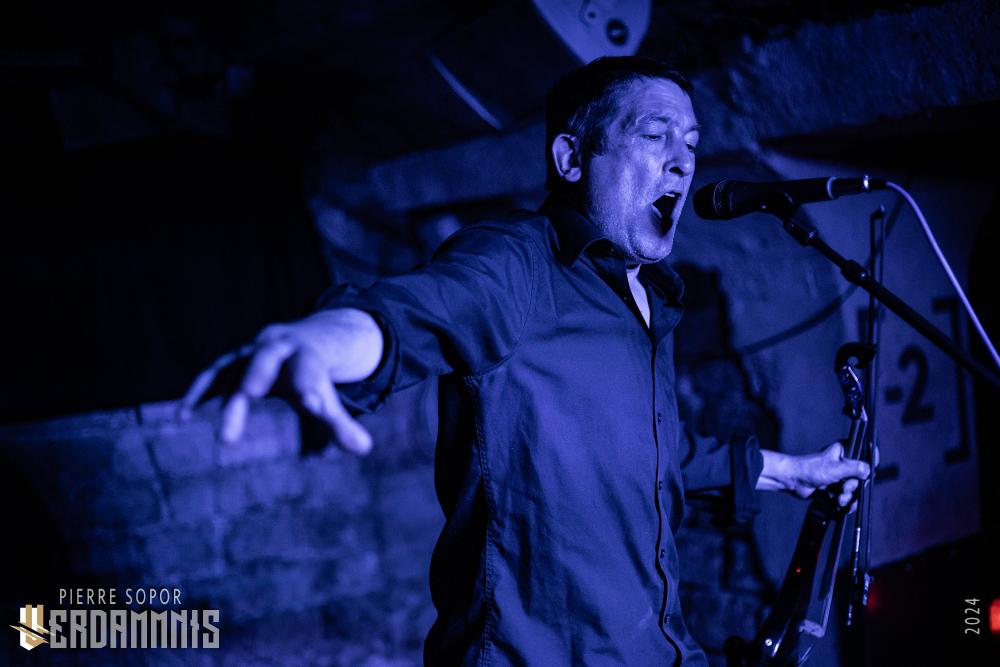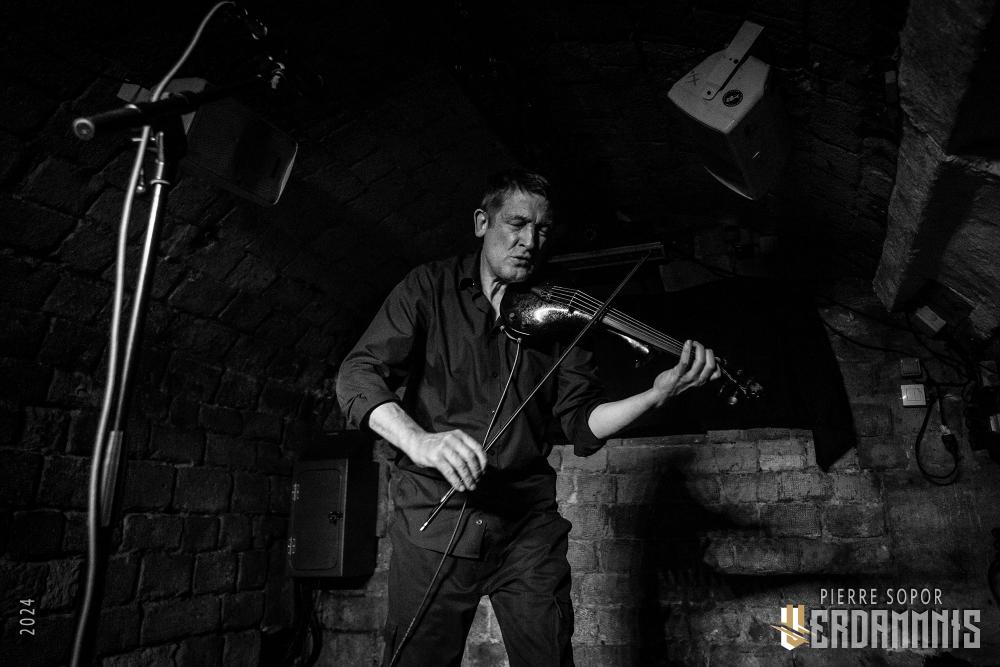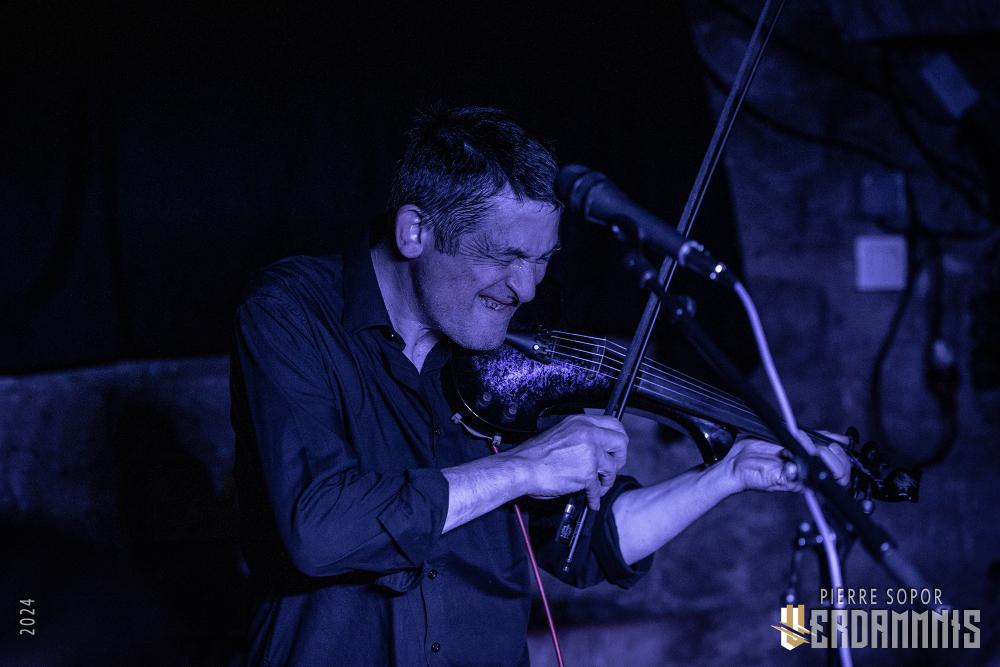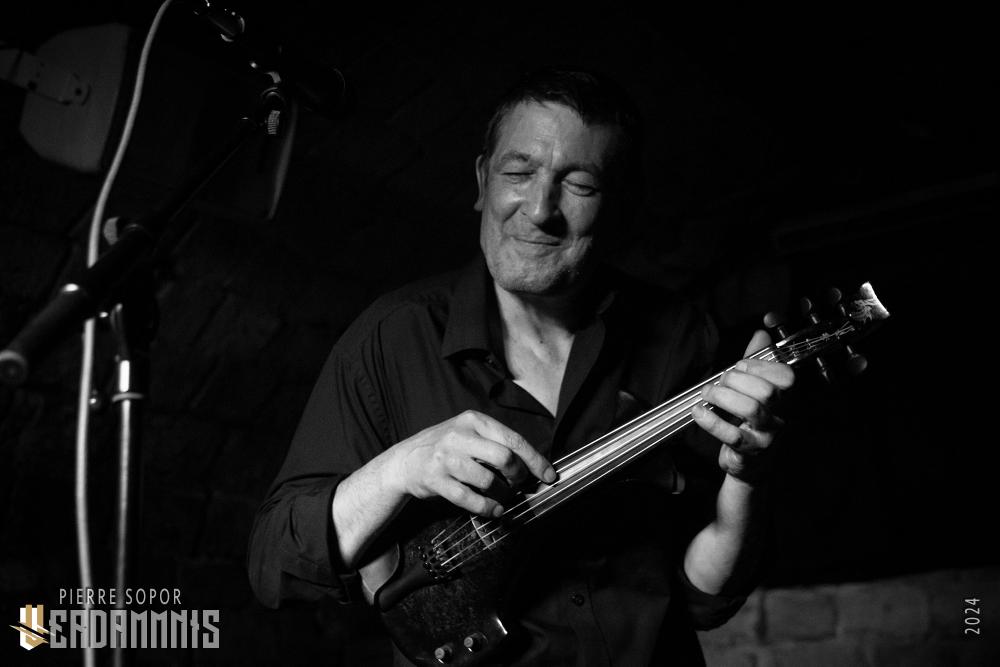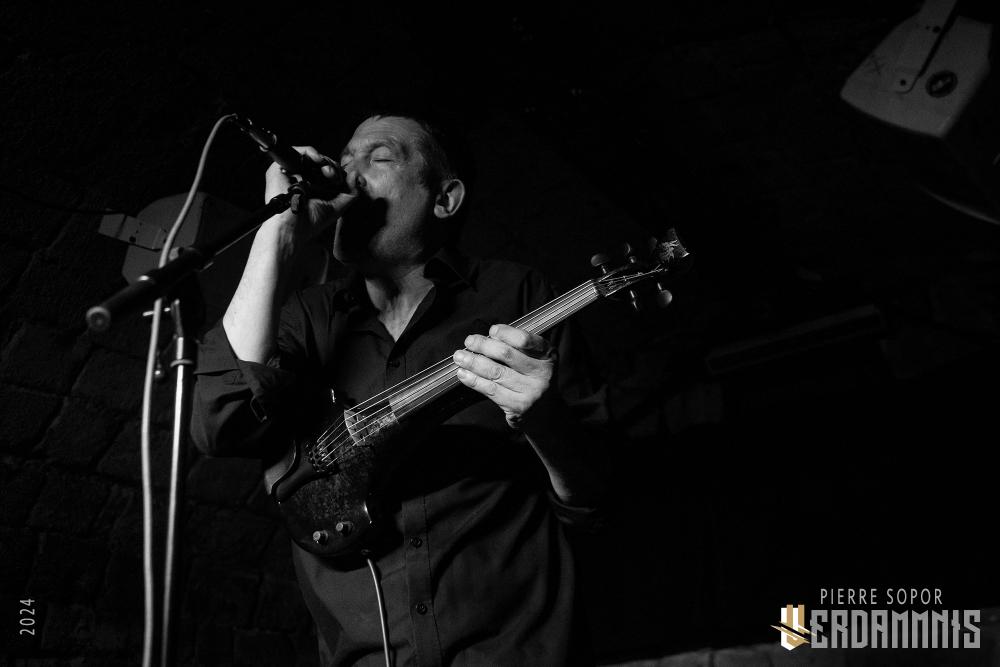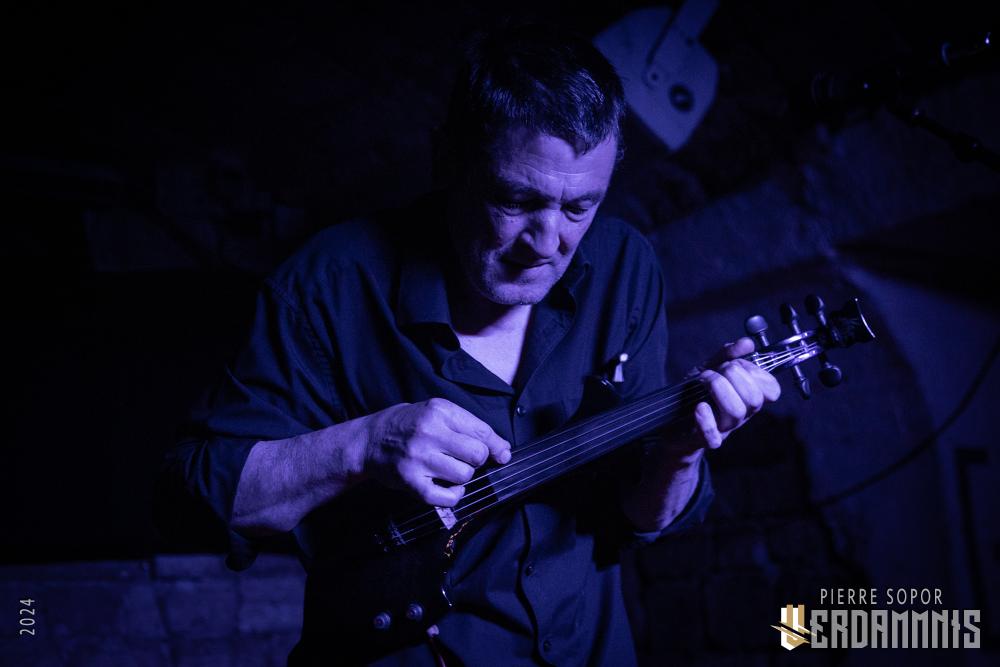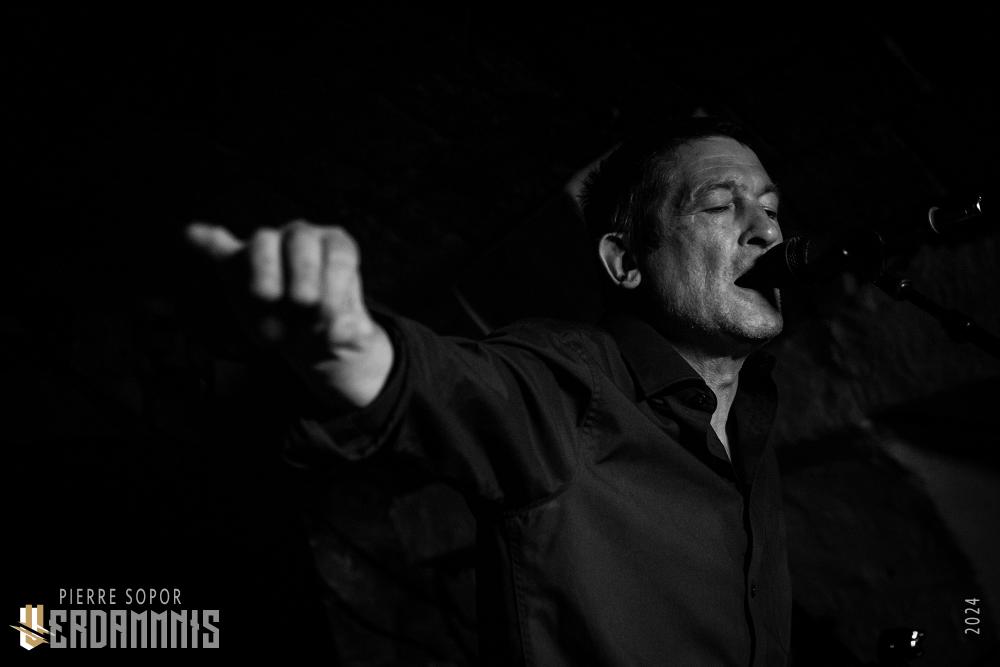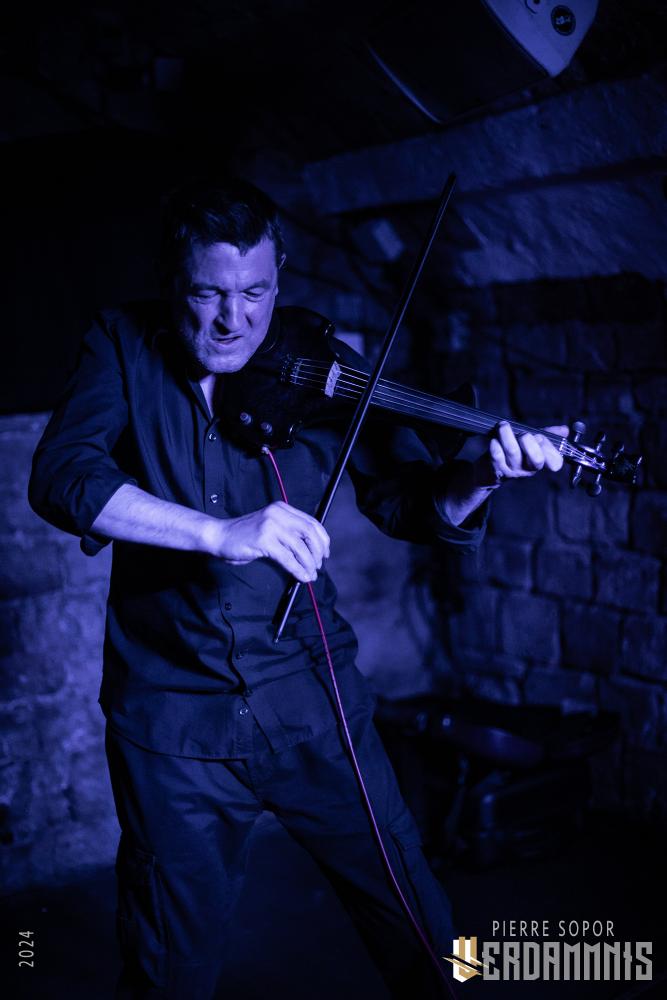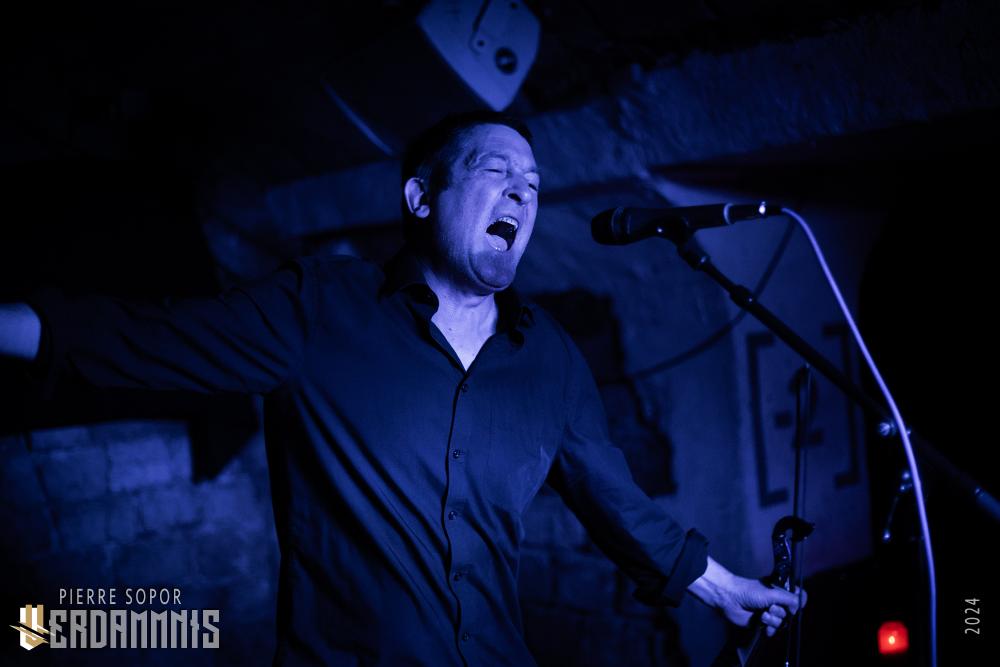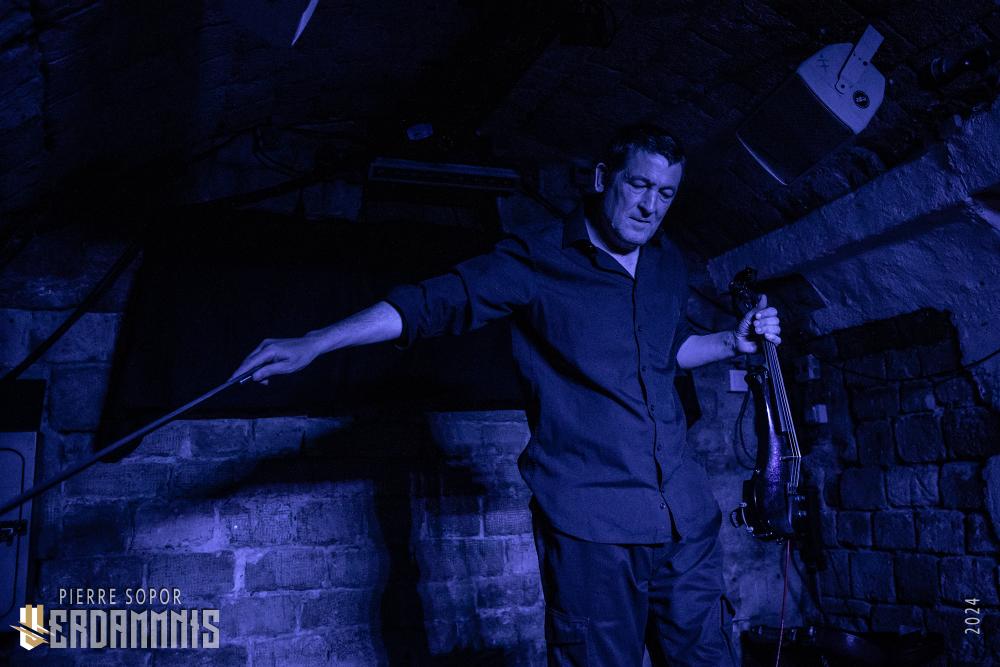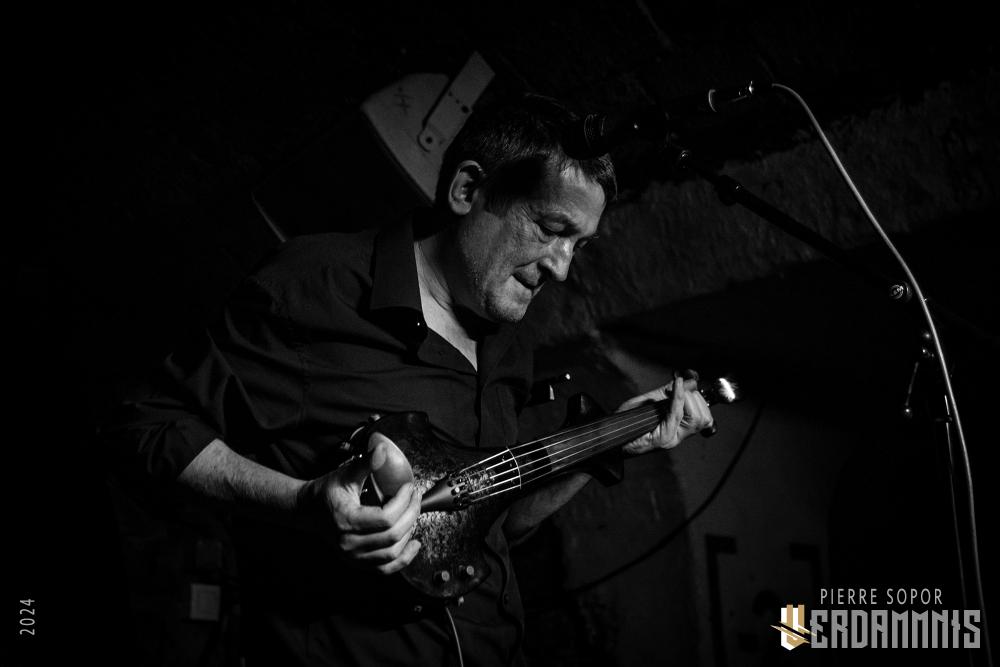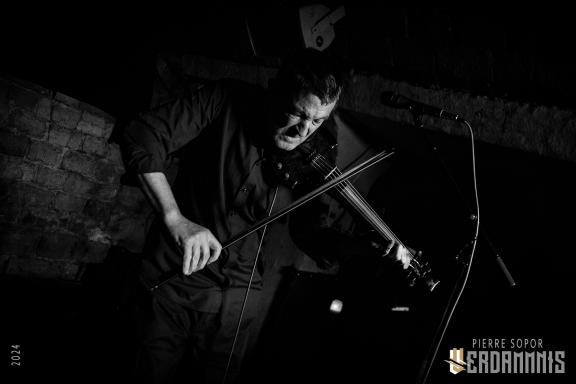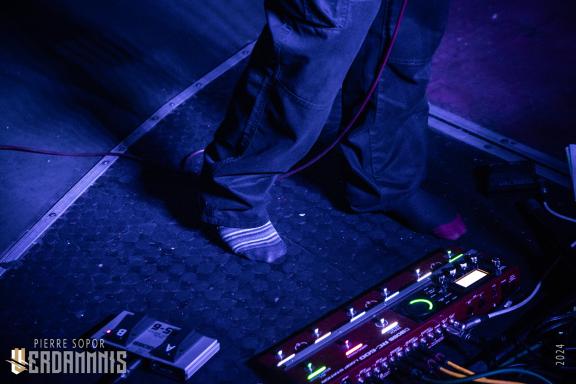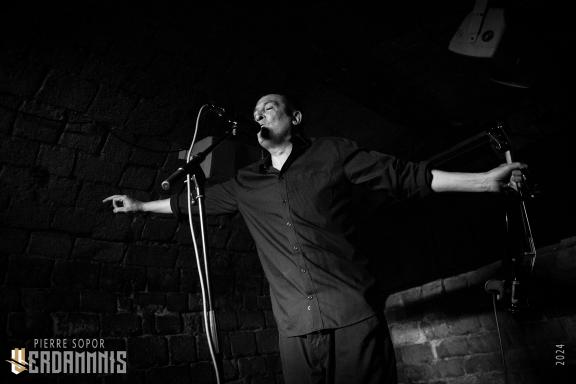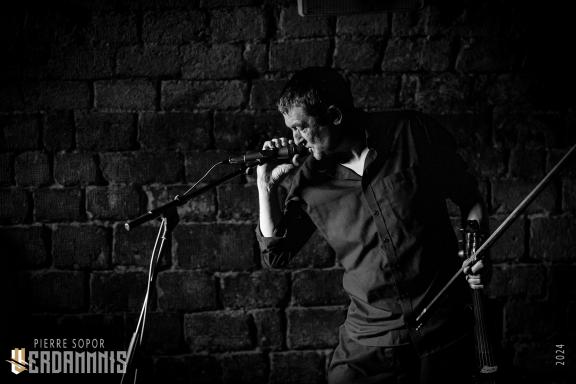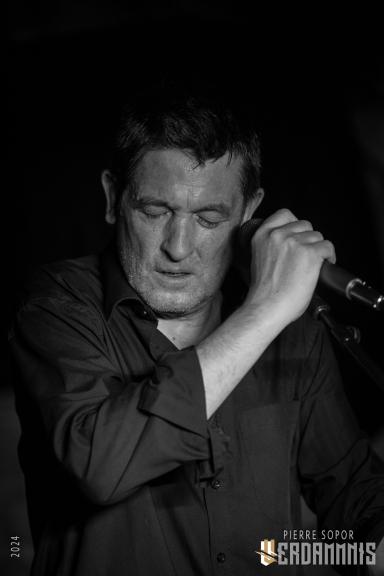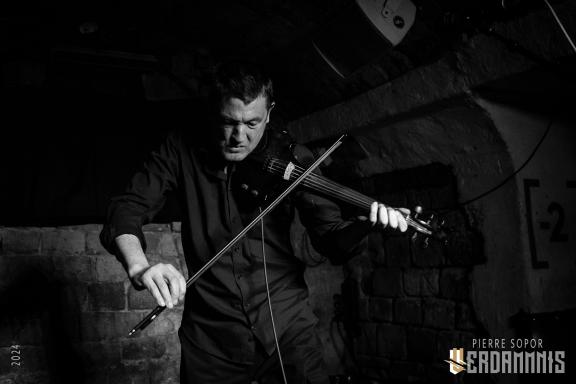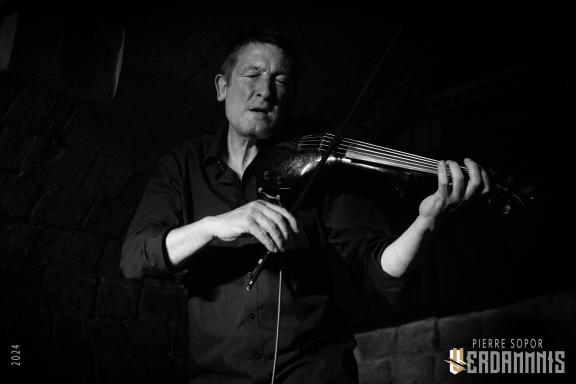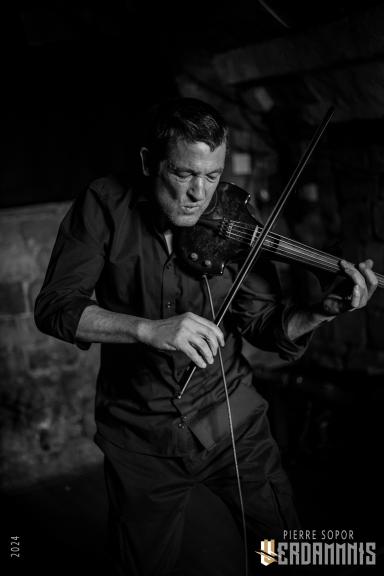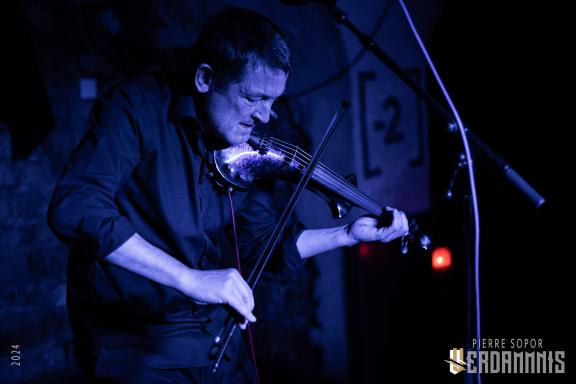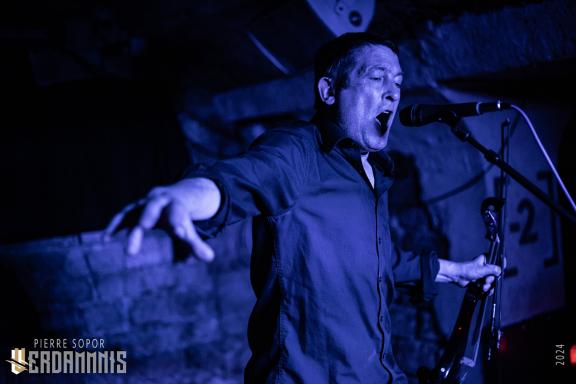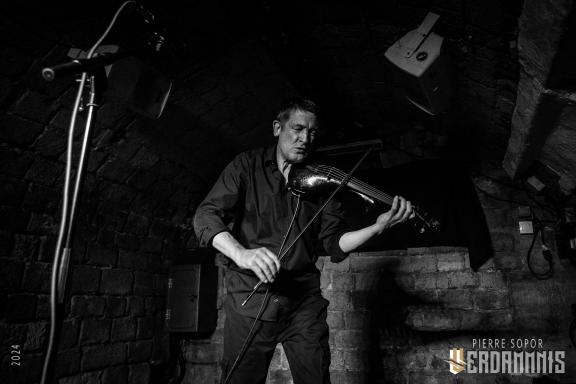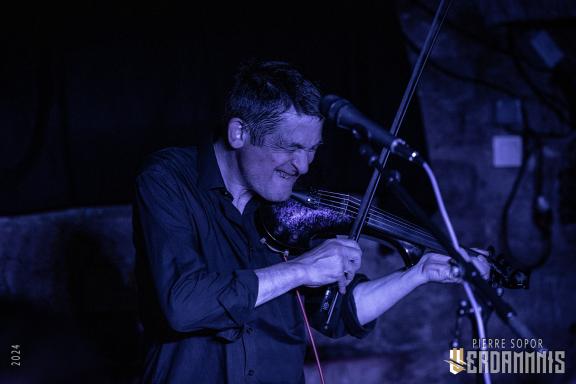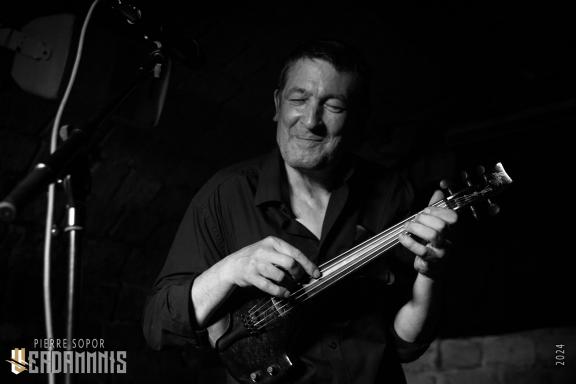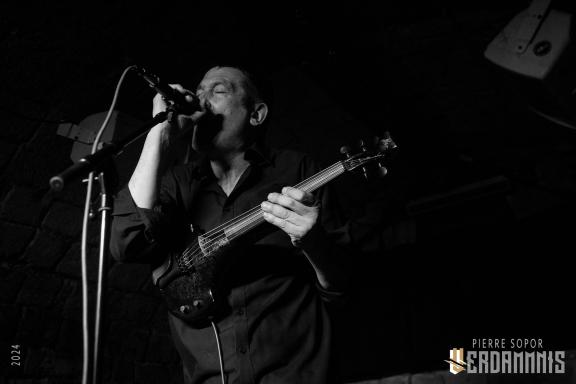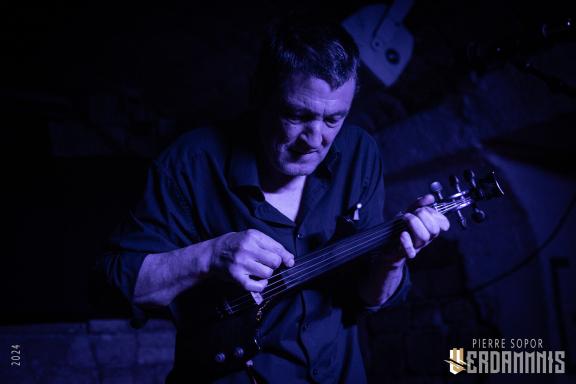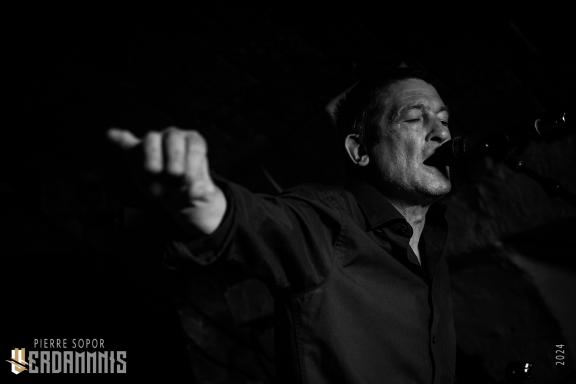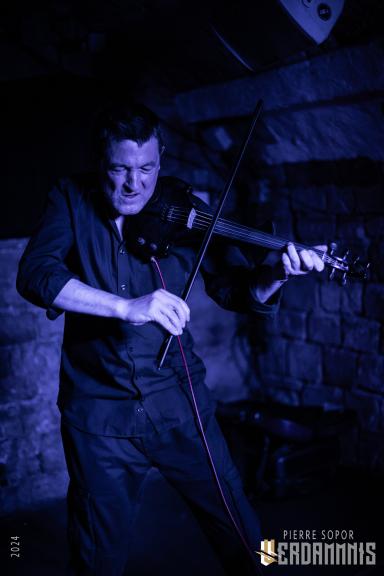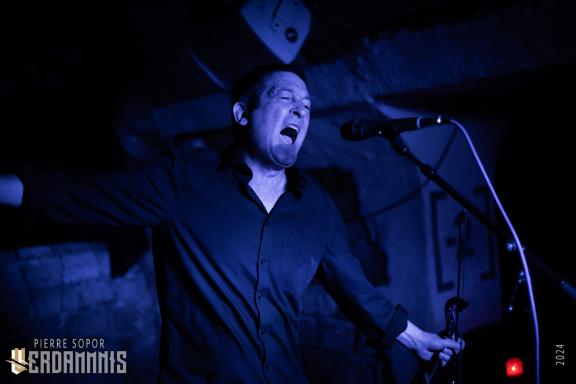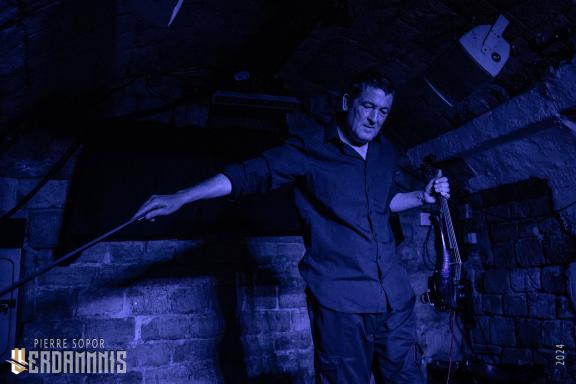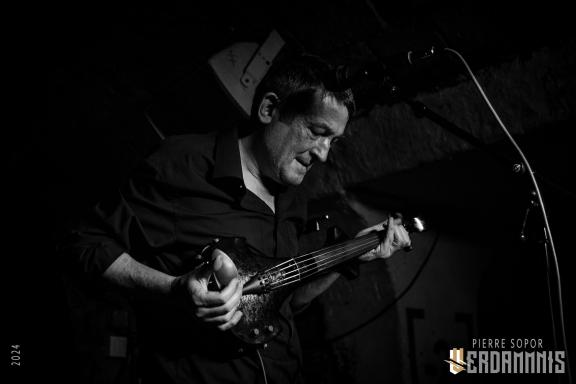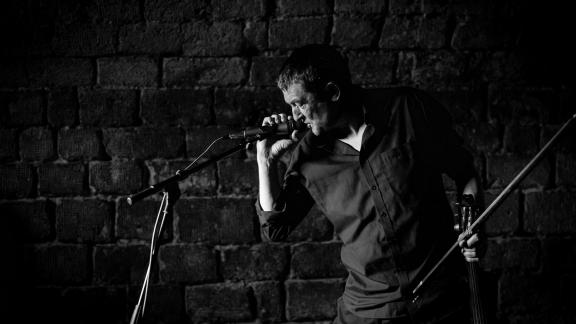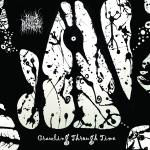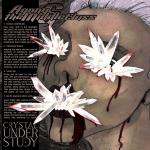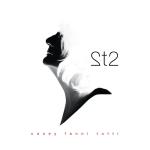To find treasures, you often have to dig. It was in the bowels of the Klub that the Au-delà du Silence collective proposed its ninth “Aucune Petite Musique ne Nuit” session, bringing together two characters as rare as they are atypical. Despite careers spanning several decades, David E. Williams and Sieben's appearances in France can be counted on the fingers of one hand. Neofolk, dark pop, darkwave: whatever the label, these two combine their poetry with an art of the quirky that hits the nail on the head.
DAVID E. WILLIAMS
For want of a better word, we'll call David E. Williams a goth oddball. Discovering him, for the uninitiated public, first sends a shiver of concern: with his austere appearance, the artist sits behind his synthesizer and doesn't look like the most amusing of troubadours. Well, not only does he look like a character from The Addams Family, he also has a deadpan sense of humor.
David E. Williams runs through his discography, stringing together short tracks that mix absurdity and irony, seeking melancholy in unexpected images ("do you ever wish you were someone else... like a horse, for example?" he asks, gloomy, before rhyming “I wish I was a horse, no marriage or divorce” with, later, “I wish I was a corpse”).
The stage act is a reflection of the songs: minimalism gives way to whimsy and surprises, always performed with the enthusiasm of a depressed mortician, while his hands give life to melodies as simple as they are gripping. Resigned dance steps like a death row inmate, accusatory gestures, bulging eyes and furrowed brows: whether talking about picnics or Idi Amin Dada, David E. Williams keeps his jaded pout. Between songs, he gives thanks in Italian, Spanish, German... like any good American, he explains without the shadow of a smile that he confuses European countries.
And then, suddenly, after mixing tragedy and comedy by singing about the spleen of a foot suffocating in its shoe, after taking on a creepy high-pitched voice on Get Me Ladder or fiercely confessing that he'd rather be a rat than a sinking ship, David E. Williams plunges into the intimate and poignant, stripped of facetiousness, to talk about illness and death. The power of contrasts: we understand the tragic better because we've been able to enjoy ourselves, and we enjoy ourselves better because we need to be relieved after such heavy moments. David E. Williams, a master of tone breaks and sinister bon mots, is as endearing as he didn't seem funny an hour earlier, and in his delightful role, well aware at times of the ridiculous, he doesn't give a damn about “looking cool” or any of that nonsense, imposing the bittersweet melancholy of a sad clown. Artists like this are as rare as they are precious: an gothic oddball, we tell you.
SIEBEN
With Sieben, we're in for a very different kind of troubadour. Not seen in Paris for ages (2007 before Emilie Autumn, perhaps?), Matt Howden is also unique. Naturally, he takes to the Klub stage in mismatched socks, an imperative detail made famous by his weekly stream of concerts during confinements. The smile is warm, as always: we see each other in real life, we're at the Klub, but Howden manages to give the impression that we're in his living room, just as when he invited us virtually. We're almost nostalgic for those covid days when Sieben was playing for us every week!
The setlist highlights the violinist's most recent work. For those who haven't kept up with his evolution, or who remember him from 2007, there's plenty to be surprised about. Since Crumbs in 2018, Sieben has let loose an anger, an irony and a more critical stance that had previously been more contained (although we remember fiery irruptions like Rite Against the Right in 2007). On the violin, looped thanks to the pedals at his feet, he adds electronics to the point of opting for a coldness and industrial heaviness as aggressive as it is unprecedented on his most recent tracks (the zany Ads 4U, the ranting Programme of Entertainment or the very nasty, theatrical trip-hop on steroids of What do I Know or the violence of Fuzzageddon at the end of the set).
Sieben may let his fury show, but the poetry hasn't disappeared, and Howden wrings poignant laments from Kev (the name of his Kevlar violin) (the finale on Black Moon, Rise Again from the superb The Old Magic, a track rescued from the pre-Kev period). The intensity of these new tracks is multiplied tenfold live by the energy Matt Howden puts into them, as if possessed. He comes down among his audience and works like a madman, brandishing his bow, the weapon with which he attacks monstrous windmills, his music against stupidity.
Between two trances in which he uses his violin as a guitar, he laughs at being completely short-sighted and at the apocalyptic future that a certain orange moron will eventually provoke across the Atlantic. This is Sieben: elegance and politeness at all times, a facetious smile to tell us about our imminent demise, a raging charge wrapped up in poetry and a playful pleasure in creating, in torturing Kev, in playing around with loopers to take us into a crazy and delightful creative universe. What class! All we can do now is hope that this gentle madness will take hold of French audiences again one day. Come on, we can dream: you, the rich and famous organizer who reads us, it's about time to program Sieben with Machinalis Tarantulae and Jo Quail!

